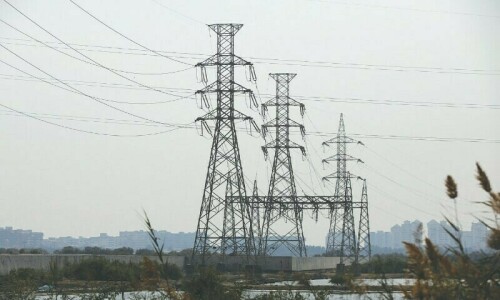COMING at the end of a year that has held quite a few shocks for Pakistani diplomacy, the news that Saudi Arabia is planning to convene a meeting of Muslim foreign ministers exclusively on the Kashmir issue deserves to be welcomed.
But some of the diplomatic jolts need to be recalled.
In March, the UAE invited the Indian external affairs minister to a meeting of foreign ministers of the OIC, without considering the opinion of Pakistan, an OIC founding member. Then following Aug 5, when India’s Hindutva government headed by Narendra Modi abrogated the special status of India-held Kashmir, there was no criticism of the move from the Arab side; those who condemned it included Malaysia and Turkey.
While the Arab stance reflected adversely on the acumen of Pakistan’s diplomats, it also underlined the cumulative mindset the Arab world has developed towards Muslims from other parts of the world. This mindset is one of indifference towards non-Arab Muslims even when they are victims of state brutality, as in occupied Kashmir and Myanmar.
Islamabad’s grief over Riyadh’s passivity was the greater because of the esteem in which Pakistan holds the Saudi leadership which is regarded as the Guardian of the Two Holy Places. For that reason, Riyadh’s reaction to Mr Modi’s criminality came as a blow to Pakistanis. The media quoted official Saudi sources as saying that Riyadh wanted “the concerned parties in Jammu and Kashmir to maintain peace, and take into account the interests of the people of the region”. Noting that Saudi Arabia was following “the current situation” in Jammu and Kashmir, it called for “a peaceful settlement in accordance with the international resolutions”.
While Riyadh, thus, walked a tightrope, Dubai’s response did it no credit whatsoever, for it said that Mr Modi’s Aug 5 action was “not a unique incident” in India’s history and that it was that country’s “internal matter”.
Against this background, the report that Saudi Arabia intends to call an OIC foreign ministers’ moot devoted exclusively to Kashmir comes as a breath of fresh air.
This can be called the most positive outcome of Saudi Foreign Minister Faisal bin Farhan’s one-day visit to Islamabad.
The Saudi initiative could be interpreted in two ways: either it is a move to placate Pakistan, especially after Riyadh put pressure on Islamabad to distance itself from the Kuala Lumpur Summit, or it shows a genuine Saudi interest in the plight of the Kashmiris who early next week will complete five months of the lockdown in their homeland which has been described as “an open-air prison”.
No date or venue has yet been notified for the planned OIC conference, but let us hope it is held at the earliest and that Qatar and Iran — both Saudi rivals — are also, as they should be, invited to make it a proper gathering of Muslim countries.
Published in Dawn, December 28th, 2019












































